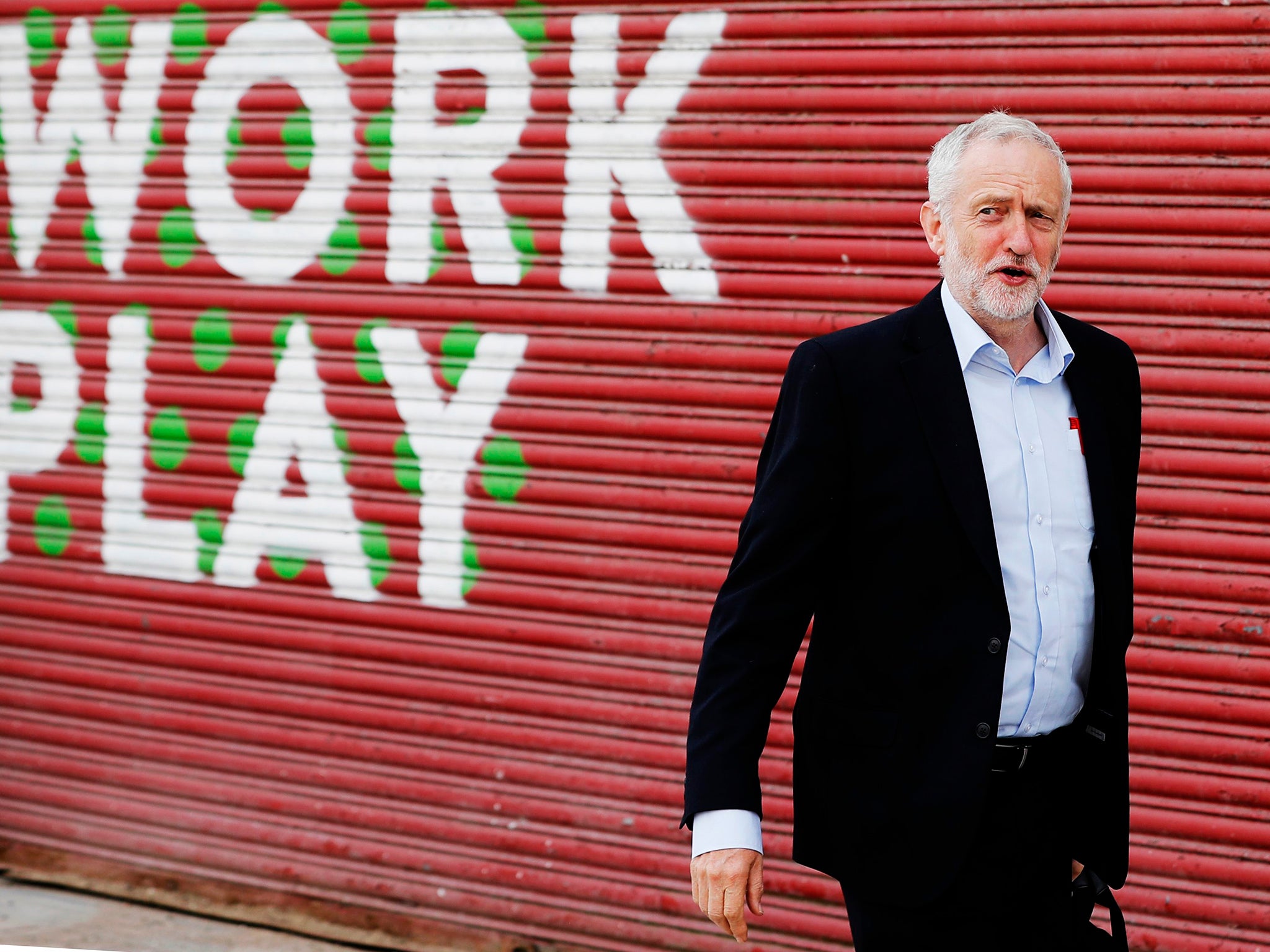For the first time during this general election, it looks as though Labour may have a chance of winning
Even some of Corbyn's harshest critics felt obliged to admit that the Labour manifesto contains good policies that appeal to a broad cross-section of society

It would be a severe overstatement to suggest that things are currently going well for Labour. There’s been a recent upturn in the polls, true, but the party is still lagging a good nine points behind the Tories. It’s only because things were looking so bleak before that a comparatively smaller defeat can be interpreted as some kind of success. On a uniform swing, current polling suggests they’ll lose 12 seats while the Conservatives will gain 16. And even that’s optimistic, as evidence suggests that vote losses have been heavier in crucial marginal constituencies.
Still, when you think about where they were a month ago it’s hard not to be somewhat impressed. This election was supposed to be May’s for the taking. Having insisted there would be no early election, she then changed her mind to boost her majority at a time when Labour seemed at its weakest. Since then, her poll lead has halved. In vote share terms, Labour is currently polling only a percentage point lower than its result in the 2005 election – which was enough to secure a significant majority. The reason the Tories are still so far ahead is because, post-EU referendum, they’ve swallowed up most of the Ukip vote by adopting the nationalist agenda.
The release of the parties’ respective manifestos was a pivotal moment. Even some of Corbyn’s harshest critics felt obliged to admit that, actually, the Labour one contains a lot of good stuff. Promises including free childcare for all two- to four-year-olds, a properly funded NHS, free hospital car parking, one million new homes, a cap on rent hikes, an increase in the carers’ allowance, an end to the 1 per cent public sector pay rise cap, an increase in carers’ allowance, the reintroduction of the education maintenance allowance and free higher education made sure there was plenty to appeal to a broad cross-section of society.
Plans to introduce a “fat-cat” tax on banks and a new 50p income tax band for earnings over £123,000 (but no tax rises for anyone earning under £80,000) allayed fears about how such measures will be funded. The whole document was costed in detail – an essential move for a party particularly vulnerable to accusations of economic incompetence.
In contrast, the Conservative manifesto has gone down like a lead balloon. Entirely uncosted (something the Tories find easier to get away with) and almost all punishment with few positive promises to sweeten the deal. Though the largest swing seems to have been amongst 25-49s, who are now 15 per cent more likely to say they’re planning to vote Labour than they were previously, the policy that has attracted most negative attention primarily affects the elderly. The so-called “dementia tax” is basically a levy on inheritance that only affects people unlucky enough to need social care. Critics on the left have pointed out that the policy may deter people for seeking the help they need because they worried about being to leave something for their children. There’s also a strong risk it will encourage suicide.
The backlash was so strong that May was forced into an embarrassing U-turn, but her attempted “clarification” left voters with more questions than it answered. It seems she’s still planning to go ahead with the “dementia cap” but will introduce a cap on the total amount that can be taken. Of course, this only helps the richest who’ve got more than can be taken. Comparatively less wealthy dementia sufferers will be hit just as hard.
May gave a press conference to explain the reversal and looked rattled throughout. A lot depends on how the updated policy is covered by the media, but watching a clip of that performance might be enough to make some voters question their choices. Her supposed primary selling point is that she’s “strong and stable” – yet she’s managed to turn what should have been an easy campaign into a total farce. Opposition politicians are already questioning what this headless chicken-style performance demonstrates about her ability to navigate tricky Brexit negotiations.
It would be easy for left wingers to get carried away. There are only three weeks left until the election and a nine point gap is significant. Even if the Conservatives make further blunders, a Labour majority is a long shot. Still, for the first time since the election was announced, such an event doesn’t feel entirely outside the bounds of possibility. And a hung parliament seems more plausible still. No doubt, this will provide a new burst of energy to the party’s army of doorstop campaigners. If recent years have taught us one thing, it’s that politics can sometimes be very hard to predict.
Join our commenting forum
Join thought-provoking conversations, follow other Independent readers and see their replies
Comments